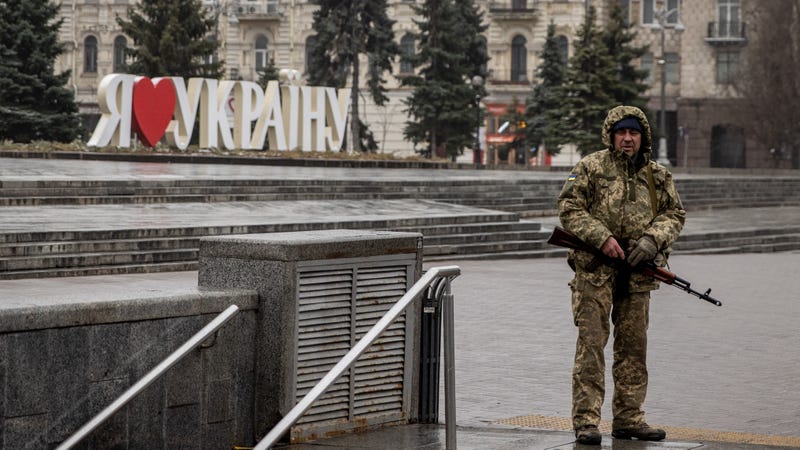
PHILADELPHIA (KYW Newsradio) — Russia's invasion of Ukraine has already taken a massive toll on human lives and families. It's affected how society functions in Eastern Europe. It's captured the attention of governments and private industry, and the economic effects have only started to ripple out.
Listen to Dr. H. David Robison's analysis on the multi-layered effect the Russian invasion of Ukraine will mean on the U.S. and European economies as well as your family's bottom line.

"Certainly gas and energy are the top of the list," said Dr. H. David Robison, chair of the Economics Department at La Salle University.
"Even though we don't buy much gas or oil from the Russians, because that market's international, anything that happens anywhere in the world tends to affect the prices everywhere in the world."
Robison added that if the conflict doesn't escalate "a whole lot," the national gas average should be expected to rise to about $4 per gallon.
"There is sort of the general consensus among oil industry analysts that oil prices will go to roughly $110 to $120 per barrel," he said.
"If there's a big escalation in the conflict, and great restriction in supply, we could see oil prices go much, much, much higher than that, which is not what people are really expecting. Who knows in terms of what Vladimir Putin and the Russians will do?"
It starts with gas prices, but the invasion will hit more than just energy prices.
Robison said that people will also feel the effects in the cost of computer chips, car prices, shopping and food delivery costs.
"One of the things we do import from Russia is palladium and other minerals. Palladium is used to make catalytic converters and it also goes into computer chips," Robison said.
"We could see some strong impacts in the auto industry, and also through computers and some of the technology issues, and that's where I expect to see the second biggest impact."
As for shopping and food delivery, perhaps we may not be driving as much to stores to buy items, but delivery services will still have to use gasoline.
"They're going to have an increase in their costs," Robison explained.
"It also costs more to have it delivered. It's hard to predict exactly what will happen in retail. But most analysts are currently estimating that online shopping will get yet another boost, and commercial retail will drop off a little bit more."
Robison also dived into sanctions, the divestiture of Russian assets, runs on banks there, the SWIFT system, and how families will handle the overall effects on the economy in their day-to-day spending. Listen below in your podcast player.

For more from KYW Newsradio:
- Download the Audacy App
- Listen live
- Listen on smart speakers



